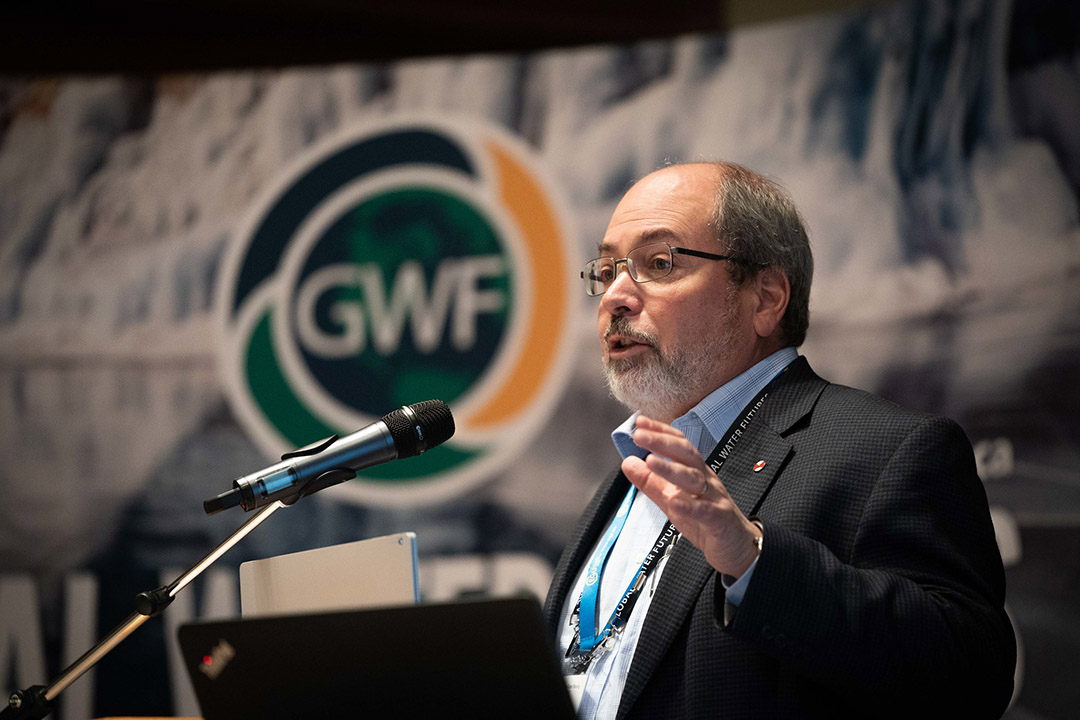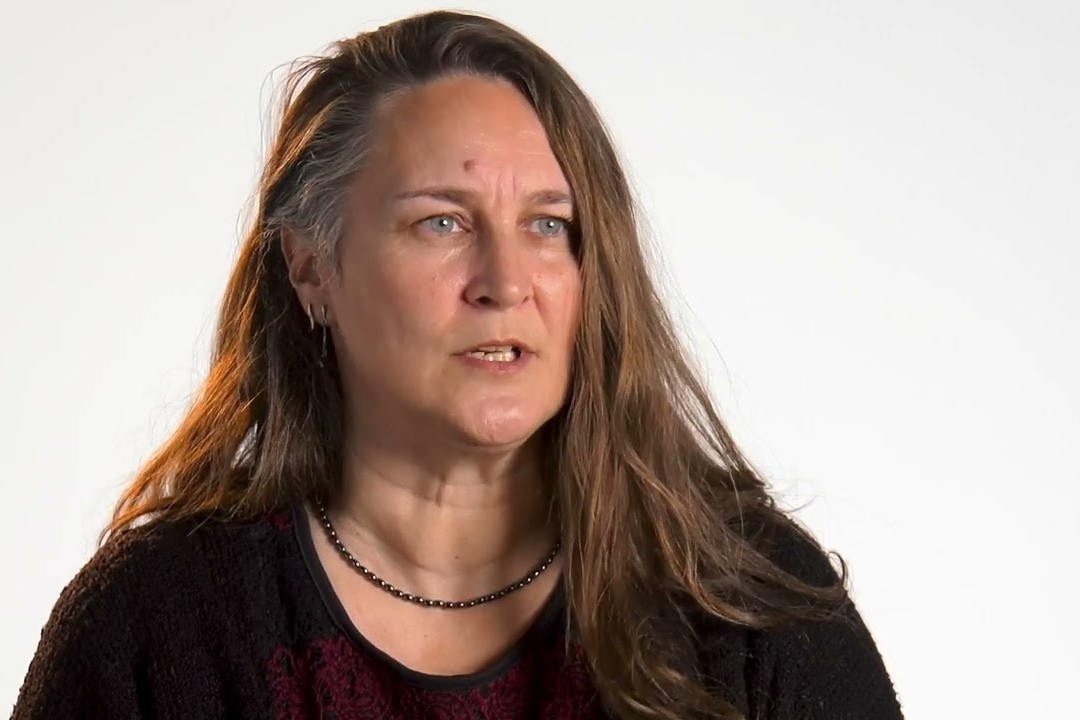The state of water security in Canada: A water-rich nation prepares for the future after seasons of disaster
Canada is known as a water-rich nation, but we are not a water secure nation. Researchers warn that if a national strategy based on the latest science and Indigenous knowledge is not taken seriously and urgently, our water security could be in even greater peril, risking the lives, livelihoods and health of communities and the integrity of our natural environment.
By Mark Ferguson, Global Institute for Water Security and Global Water Futures, USaskArctic Polarity, an art piece from the USask-led GWF Virtual Water Gallery. (Artist: Megan Leung)

The climate crisis is becoming a water crisis, and last year was one of the most disastrous years in Canadian history for water-related extreme events. Widespread drought, flooding, wildfires, permafrost thaw, and glacier retreat resulted in damage to communities, lakes, forests, animals, and crops.
As spring 2022 begins, scientists are seeing snowpacks at record-highs in the Yukon and parts of the Rocky Mountains and Manitoba that could lead to more flooding in the West. However, low to non-existent snowpacks have developed across parts of southern Alberta indicating that another drought leading to difficulty growing crops and feeding and watering livestock, could also be on the horizon.
“The canon is loaded yet again,” said Dr. John Pomeroy (PhD), Canada Research Chair in Water Resources and Climate Change at the University of Saskatchewan (USask). “We are seeing all-time records for snowfall in parts of northwestern Canada that normally wouldn’t occur until April, so concerns remain for floods. But snow drought continues in the western prairies too, with mid-winter dust storms in southern Alberta in the last month. Warmer than normal spring weather can also lead to intense spring rainstorms and so the situation is volatile for much of the country.”
Pomeroy heads up the pan-Canadian Global Water Futures (GWF) program which employs more than 1,100 researchers across the country. Several GWF representatives along with many others from the Water Security for Canadians initiative traveled to Ottawa on March 22, World Water Day, to speak with members of parliament and other water policy makers from across the country to see how we could come together to find solutions to the emerging water crisis facing Canada.
“Since 2000 Canada has had the most expensive and severe floods and droughts in its history, and at the same time lake water quality has declined, leading to harmful algal blooms,” said Pomeroy. “Groundwater has become increasingly contaminated and drinking water supplies remain unsuitable for human consumption in many Indigenous communities. We have to address this as climate change causes a massive increase in our water-based natural disasters and ability to sustain our communities, economy and natural environment. There is an incredibly important need for a nationally co-ordinated approach to water sustainability. Water is the messenger that tells us we are in a climate crisis. It is our wakeup call.”
“Water is life to Indigenous Peoples across Canada – if the water is not healthy, then people are not healthy. It’s entirely related,” said Dr. Dawn Martin-Hill (PhD), associate professor of Indigenous Studies at McMaster University and a GWF researcher.
Martin-Hill, from the Mohawk Wolf Clan of Six Nations of the Grand River, said the need to engage with First Nations People is paramount to the health of water and the future of Canada.
“Braiding Indigenous ecological knowledge with western science is key to innovatively assessing water security and mitigating climate change impacts on First Nations,” she said.

The role of Indigenous People is vitally important, and so too is the role of women.
“Women and girls around the world are often the water keepers or the water fetchers, and the next generation of scientists, policy makers, and politicians need to include more women and greater diversity if we are going to equitably solve the water problems in Canada and around the world,” said Dr. Corinne Schuster-Wallace (PhD), USask associate professor. “It’s exciting when conversations like this happen on a day such as the United Nation’s recognized World Water Day.”
Schuster-Wallace, GWF assistant director and co-lead of the Canada Water Decade initiative, knows how far Canada needs to go to meet our targets on the UN’s Sustainable Development Goals – especially SDG6 on Clean Water and Sanitation.
This year the theme for World Water Day is Groundwater: Making the Invisible Visible, “and this certainly speaks to roles of women and other equity-deserving groups who have been invisible in these conversations for too long,” she said.
With key stakeholders in Ottawa on World Water Day, and with the continuing strong national dialogue on Water Security for Canadians, policy and legal experts are ready to work with government to establish the likes of the Canada Water Agency.
“Water knows no boundaries – it doesn’t care if a provincial or national border interrupts the flow, water ties us together,” said Merrell-Ann Phare, lawyer, legal counsel, and advisor to Indigenous and non-Indigenous governments on water rights. “These national conversations are so important to a better future on water for all people.”
Phare, a Member of the Forum for Leadership on Water (FLOW), said breaking down the barriers for all people to establish healthy water systems can lead to greater understanding and conversations.
“Water is the key to climate change, and we need a national strategy now,” said Phare. “We can design healthy, safe communities and keep our economy going, to work together as a country, to learn and respect each other, and to really prepare for the future in a meaningful way.”
Additional resources:
Global Water Futures: www.globalwaterfutures.ca
Canada Water Decade: www.canadawaterdecade.net
Forum For Leadership on Water: www.flowcanada.org
Water Security for Canadians: https://gwf.usask.ca/outputs-data/major-outcomes/water-security-4-canada.php

